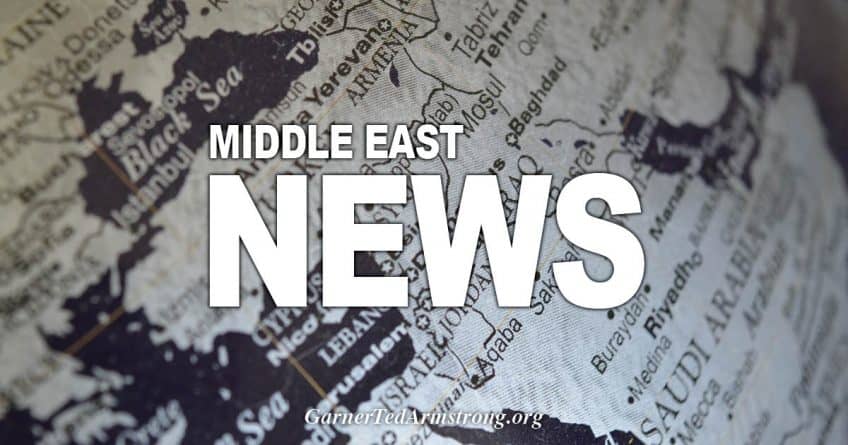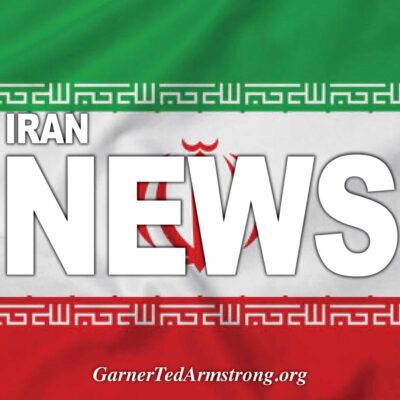President hails Tehran’s atomic achievements on Nuclear Technology Day, as negotiations in Vienna to revive 2015 deal drag on.
As negotiations between Iran and world powers continue in Vienna over potentially reviving the 2015 nuclear deal, Iran’s President Ebrahim Raisi said Saturday that Tehran would not back down “an iota” from its nuclear rights.
Speaking on Iran’s Nuclear Technology Day, Raisi said, “For more than the one-hundredth time, our message from Tehran to Vienna is that we will not back off from the Iranian people’s nuclear rights… not even an iota,” according to a Reuters translation of a state media report.
“Our knowledge and technology in the nuclear field is not reversible. Iran’s [continuation of] research in peaceful nuclear fields will not depend on others’ demands or viewpoints,” said Raisi, who came to power in August.
Raisi repeated Iran’s insistence that Iran’s nuclear ambitions are only peaceful — a claim doubted by Israel and the West.
The president attended an exhibit of the National Atomic Energy Organization, to see the latest achievements of nuclear scientists, according to state media, which did not give details on those achievements. Raisi described them as symbolic of self-reliance and self-confidence.
He also said Iran’s work on its nuclear program had accelerated.
The United States and Iran blamed each other this week for a weeks-long impasse that has held up a return to the 2015 deal that sought to prevent Tehran from developing nuclear weapons.
Iranian foreign ministry spokesman Saeed Khatibzadeh said that the country’s negotiators would not return to Vienna, the site of the year-long talks to restore the Joint Comprehensive Plan of Action (JCPOA), until Washington settles outstanding issues.
“We will not be going to Vienna for new negotiations but to finalize the nuclear agreement,” Khatibzadeh told reporters in Tehran. “If Washington answers the outstanding questions, we can go to Vienna as soon as possible,” he said, without explaining the specific questions that remained.
“At the moment, we do not yet have a definitive answer from Washington,” he said.
But in Washington, Khatibzadeh’s State Department counterpart Ned Price pushed back, suggesting it was Tehran that was not giving way to make a deal possible.
And Price warned that time was running out, as Iran gets closer and closer to the nuclear “breakout” point when it has achieved the capacity to construct a nuclear weapon.
“Anyone involved in the talks knows precisely who has made constructive proposals, who has introduced demands that are unrelated to the JCPOA, and how we reached this current moment,” Price said.
“We still believe there is an opportunity to overcome our remaining differences,” Price said.
He said Iran’s continuing nuclear development has put it within “weeks” of breakout, which would nullify the benefits of a new agreement.
“Iran has been able to shrink that breakout time from where it started to a point where we can measure it in weeks rather than months. To us that is unacceptable as a long-term proposition,” Price said.
Tehran has been engaged in long-running negotiations in the Austrian capital to revive the JCPOA, with Britain, China, France, Germany, and Russia directly, and the US indirectly.
The JCPOA gave Iran sanctions relief in exchange for curbs on its nuclear program to guarantee that Tehran could not develop or acquire an atomic bomb.
But the US unilaterally withdrew from the accord in 2018 under then-US president Donald Trump, who reimposed biting economic sanctions that prompted Iran to begin rolling back its own commitments.
Last year, newly elected US President Joe Biden pledged to attempt to revive the JCPOA, blaming Trump for allowing Iran to drop its commitments to the agreement.
In the past month, the negotiations — in which the US communicated with Iran indirectly through other participants and the European Union — have brought the parties close to an agreement.
But the talks halted last month.
Among the key sticking points is Tehran’s demand that Washington remove the Islamic Revolutionary Guard Corps, the ideological arm of Iran’s military, from the official US list of terror groups.
But the US insisted Friday on keeping the elite Quds Force of Iran’s Revolutionary Guards Corps on its designated list of terror groups.
The chairman of the Joint Chiefs, General Mark Milley, had told a congressional hearing on Thursday that in his “personal opinion” the Quds Force should not be dropped from the terror list, which has been one of Tehran’s conditions to renew the deal.
Asked Friday whether that opinion reflected the position of the administration of US President Joe Biden, State Department spokeswoman Jalina Porter seemed to agree.
“The president shares the chairman’s view that IRGC Quds forces are terrorists,” she told reporters.
[Disclaimer]









